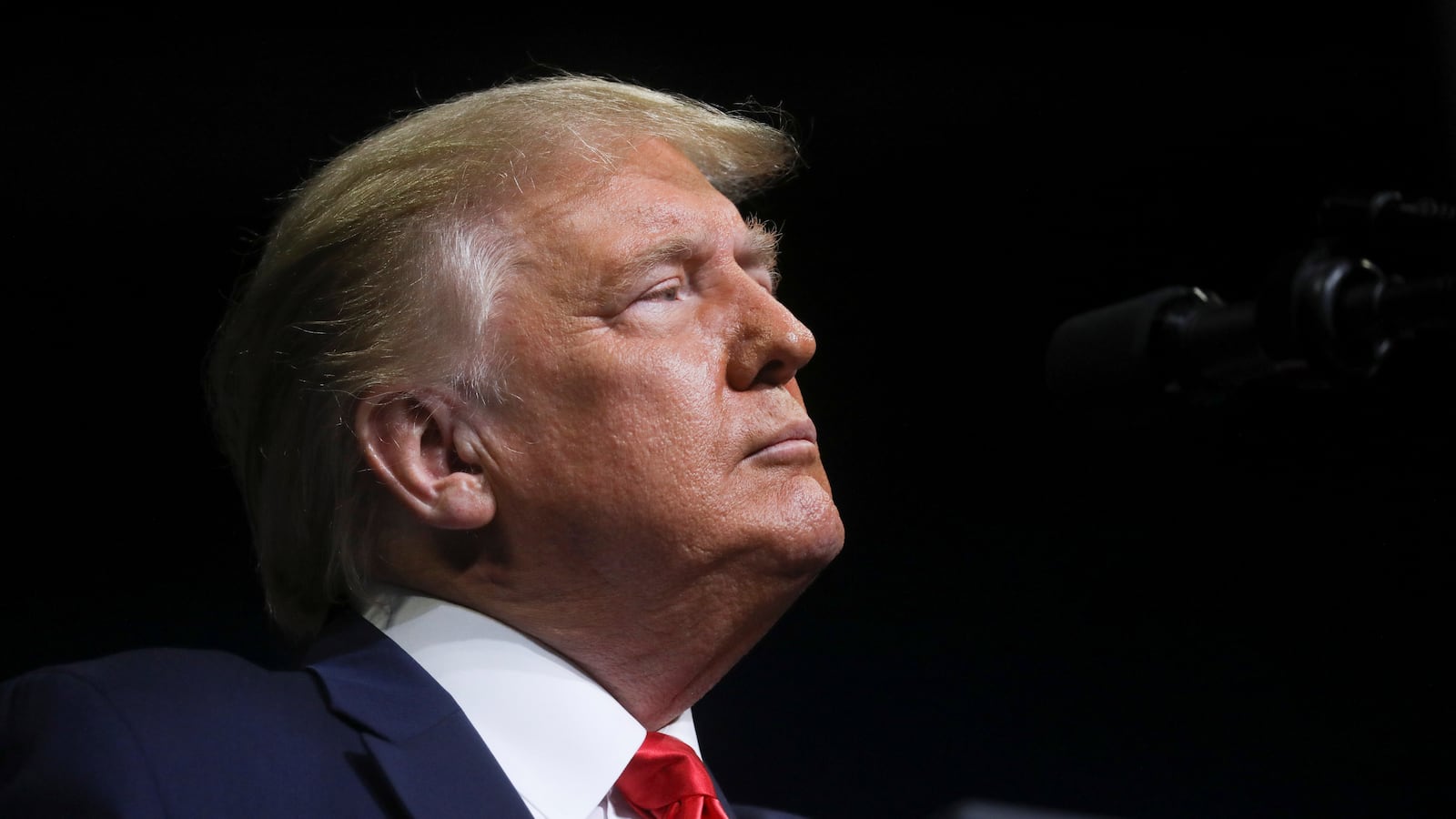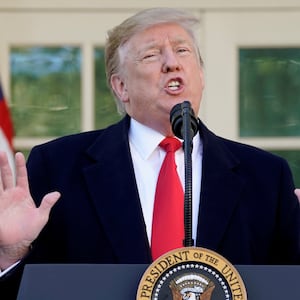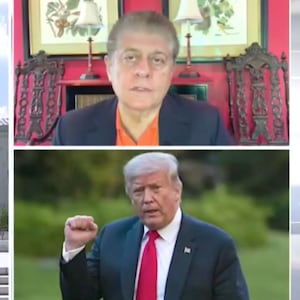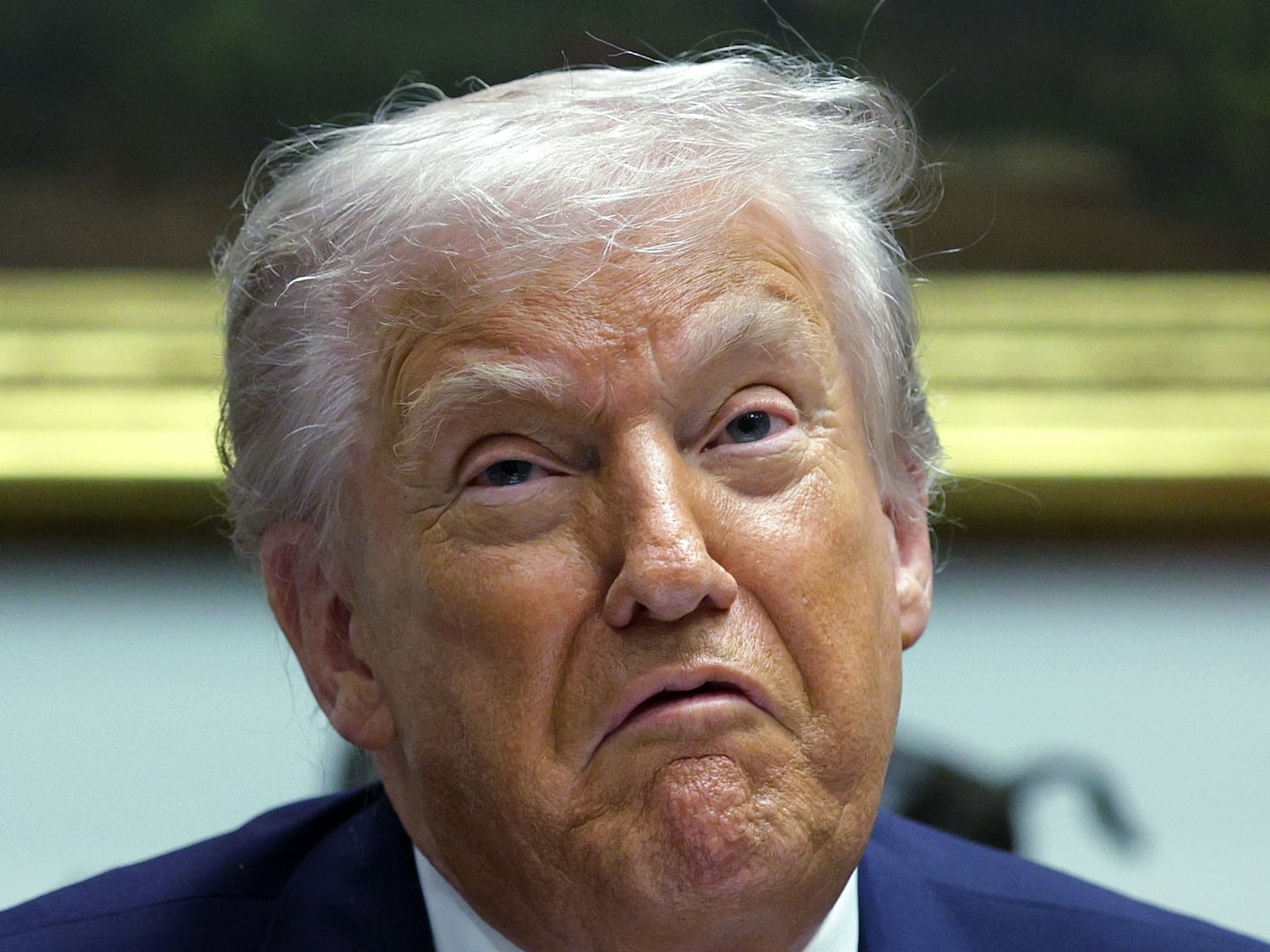President Donald Trump is not immune from turning over his tax returns and other financial records to the Manhattan district attorney, the Supreme Court has ordered in a ruling that has enraged the president.
In a 7-2 decision, the court sided with Manhattan District Attorney Cyrus Vance, who asked for eight years of Trump’s business and personal tax records to help an investigation into whether Trump and his company violated state laws in connection with hush-money payments to women who allegedly had affairs with the president.
The ruling sent the case back to the lower courts, however, meaning Trump’s legal team could still try to delay the release of his records before the case is ultimately resolved. Trump reacted angrily to the decision, condemning it as “political prosecution” before vowing to “keep fighting in a politically corrupt New York.”
In a separate ruling that also came in at 7-2 among the justices, the Supreme Court ruled that Congress cannot subpoena a broader range of tax and financial records that House Democratic investigators had requested.
Trump has been refusing to release his tax returns for years, overturning the precedent set by the last six presidents. Both of the court cases have been fought tooth and nail by the president, who argued the cases lacked legitimate legislative purpose and were driven by partisan intent.
In a statement released after the decision in the office’s case, Manhattan DA Cyrus Vance said, “This is a tremendous victory for our nation’s system of justice and its founding principle that no one—not even a president—is above the law. Our investigation, which was delayed for almost a year by this lawsuit, will resume, guided as always by the grand jury’s solemn obligation to follow the law and the facts, wherever they may lead.”
In Trump v. Mazars, a case consolidated with Trump v. Deutsche Bank, three House committees argued it was within their constitutional authority to issue Trump a subpoena to obtain several years worth of personal financial documents and records from Mazars, his accounting firm.
The committees, including the Committee on Oversight and Reform that issued the subpoena in mid-2019 to Mazars, argued the documents were part of an investigation into government ethics and conflicts of interest in the Executive Branch. Part of the investigation, the committee argued, included “the accuracy of statements made by the president on various financial discloses.”
In the Deutsche Bank case, the House Committee on Financial Services and the House Permanent Select Committee on Intelligence issued subpoenas to the bank and Capital One for records into Trump, his family, and the Trump Organization as part of an investigation into any links or coordination between the Russian government, or any other foreign actors, that may have influenced the 2016 U.S. elections. The investigations by the two committees also focused on Russian money laundering.
The subpoenas came after Trump’s former personal lawyer and fixer Michael Cohen testified that the president had previously exaggerated his wealth in order to seek loans from several banks, including Deutsche. Cohen also provided financial documents showing Trump’s personal assets between 2011 and 2013 to prove his allegations during his February 2019 testimony to the House Oversight Committee.
Trump’s team swiftly fought back against the subpoenas, asking a federal judge in New York to block the banks from complying and arguing that the subpoenas open the door to allow Congress to seek legislative powers beyond their job description. But federal judges in New York and Washington, D.C.—both at the district and appeals court levels—repeatedly ruled against Trump and agreed with the argument that the subpoenas did not exceed Congress’ power.
“It is simply not fathomable that a Constitution that grants Congress the power to remove a president for reasons including criminal behavior would deny Congress the power to investigate him for unlawful conduct—past or present—even without formally opening an impeachment inquiry,” U.S. District Court Judge Amit P. Mehta wrote in the appeal court ruling in October.
In December, the Supreme Court agreed to take up both cases in a combined hearing. In his January brief to the Supreme Court, the president slammed the “unprecedented” subpoenas and said a ruling siding with the House Committees would have implications for presidents seeking to keep their financial records private.
Trump v. Vance is rooted in a New York grand jury investigation into whether Trump and his company violated state laws in connection with hush-money payments to several women who allegedly had affairs with the president. Vance is seeking eight years’ worth of Trump’s financial records and tax returns. The president has denied having affairs with these women, but Vance said the financial records were crucial to see if business records were falsified and if any tax laws were violated.
Trump argued in federal district court in New York that he couldn’t be subpoenaed in a criminal case because he is a sitting president. The president lost several bids last year in lower courts to stop the subpoenas, prompting the Supreme Court in December to agree to hear the case.
Similar to his argument against the congressional committees, Trump argued that the legal move sought “to compel the production of an enormous swath of the president’s personal financial information.” His legal team slammed Vance for “pointedly refus[ing] to eliminate the president as a target for indictment.”









